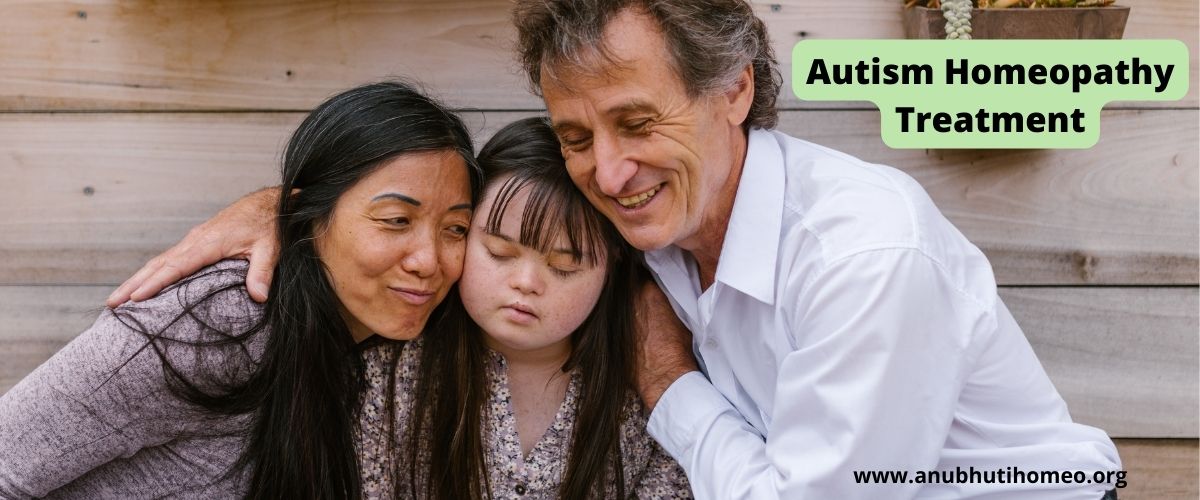A mental condition, present from early childhood, characterized by great difficulty in communicating and forming relationships with other people and in using language and abstract concepts.
Characteristics
- It is a highly variable neurodevelopmental disorder
- First appears during childhood & steadily increases.
- Overt symptoms gradually begin after the age of six months, establish by age 2-3 years, & continue through adulthood.
It is distinguished not by a single symptom, but by a characteristic triad of symptoms:
- Impairments in social interaction;
- Impairments in communication;
- Restricted interests and repetitive behavior.
Signs and Symptoms
- Problems in developing non-verbal communication skills, such as eye-to-eye gazing, facial expressions, and body posture.
- Can’t establish friendship with same-age children.
- Lack of interest in sharing achievement or enjoyment with others.
- They lack empathy. Can’t understand others’ feelings.
- Difficulty in talking. More than 40% with autism unable to speak ever.
- Difficulty in starting and continuing conversation.
- They have limited interest in activities like playing etc. i.e instead of the whole game or object they limit themselves to some part of it.
Social Development
- Social deficits distinguish autism and the related autism spectrum disorders from other developmental disorders.
- People with autism have social impairments and often lack the intuition about others that many people take for granted.
- They show less attention to social stimuli, smile and look at others less often, and respond less to their own name.
- They differ more strikingly from social norms; for example, they have less eye contact and turn-taking and do not have the ability to use simple movements to express themselves, such as pointing at things.
Communication
- About a third to a half of individuals with autism do not develop enough natural speech to meet their daily communication needs.
- Differences in communication may be present from the first year of life and may include delayed onset of babbling, unusual gestures, diminished responsiveness, and vocal patterns that are not synchronized with the caregiver.
- In the second and third years, children with autism have less frequent and less diverse babbling, consonants, words, and word combinations; their gestures are less often integrated with words.
Causes
- It has long been presumed that there is a common cause at the genetic, cognitive, and neural levels for autism’s characteristic triad of symptoms.
- Autism has a strong genetic basis, although the genetics of autism are complex and it is unclear whether ASD is explained more by rare mutations with major effects, or by rare multigene interactions of common genetic variants.
- However, there is increasing suspicion that autism is instead a complex disorder whose core aspects have distinct causes that often co-occur.
Diagnosis
- Diagnosis is based on behavioral, not cause or mechanism.
- A pediatrician performs a preliminary investigation by taking developmental history and physically examining the child.
- Several diagnostic instruments given below are used if needed.
- The Autism Diagnostic Interview-Revised (ADI-R) is a semistructured parent interview, and the Autism Diagnostic Observation Schedule (ADOS) uses observation and interaction with the child.
- The Childhood Autism Rating Scale (CARS) is used widely in clinical environments to assess the severity of autism based on the observation of children.
Screening
50% of parents of children with ASD notice their child’s unusual behaviors by age 18 months, and about 4/5ths notice by age 24 months. You need to talk to your doctor asap if there is:
- No babbling by 12 months.
- No gesturing (pointing, waving, etc.) by 12 months.
- No single words by 16 months.
- No two-word (spontaneous, not just echolalic) phrases by 24 months.
- Any loss of any language or social skills, at any age.
Autism Homeopathy Treatment
- Autism Homeopathy treatment is holistic & patient-friendly and is customized to suit each patient according to his condition. Homeopathy offers the best treatment for Autism. There are many medicines; only a few are given here.
- Bell. 200 for Hyperactivity & poor concentration, echolalia.
- Bell 1M for Self injurious behavior, jumping, biting, etc.
- Hyos. 200 for Eating/ drinking dysfunctions
- Kali Brom. 30 for Hyperactivity, short attention span
- Sulph. 200 for Poor bowel control, lack of communication, lethargy, laziness
- Sepia 30 for Poor bladder control, bed-wetting
- Calc. phos. 30 / Calc. phos.200 / Calc.Phos. 1M for Hyperactive behavior with stereotypies.
Autism Homeopathy Treatment
We at Anubhuti Homeo Clinics prefer to take a history of patients first and advise proper Autism Homeopathy Treatment remedies. A detailed history followed by constitutional treatment by a good and qualified homeopathic doctor is necessary to treat the complaints that appear. It is not advisable to resort to self-medication for any disease. The remedies mentioned in this presentation are mentioned solely to create awareness of homeopathic medicines in dealing with disease conditions.



